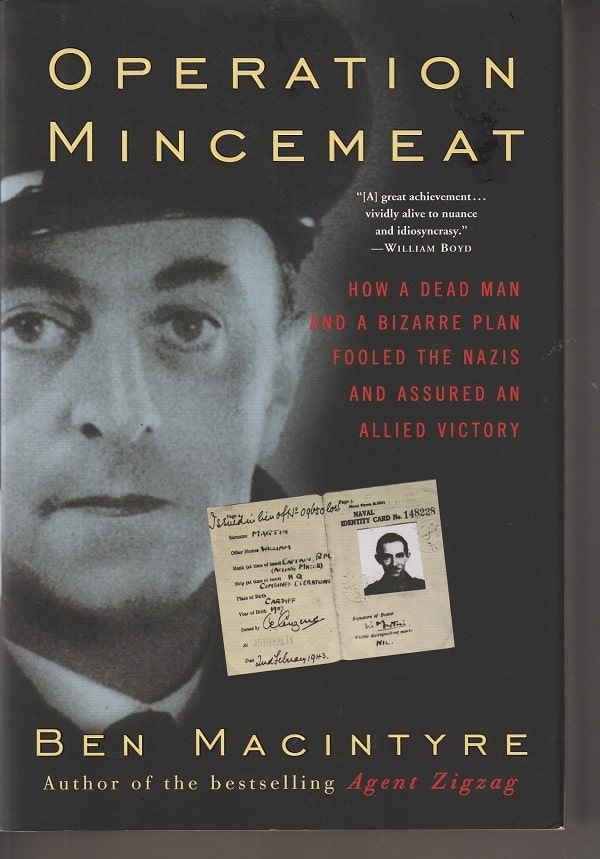There is something very British about Ben Macintyre’s “Operation Mincemeat,” detailing the plot to deceive Nazi Germany about the plans of the Allies to invade Sicily at a key moment in World War II.
And very self-congratulatory.
Maybe that’s to be expected. After all, the British intelligence service thought up this spy-novel idea of using a dead body to insinuate false documents into German hands with an aim of convincing Hitler and his minions that the invasion was going to take place in Greece and Sardinia, rather than Sicily. And it worked.
Yet, at 324 pages, this is probably 124 pages more than I wanted to know. I think I just got tired of the ain’t-we-clever? tone of Macintyre’s writing.
Games-playing
The British personality seems to love games-playing. This, of course, was a deadly serious business — the need to keep the Germans off balance and misdirected so that the invasion force could land and create a beachhead in relative safety. Yet, in bestowing on a convenient corpse the fiction of the military man with important papers, the British spymasters were having a lot of fun, too.
Maybe what really bugs me is, if you’ll excuse the term, a lack of good-sportsmanship. Not in the tricking the Nazis. But in the telling of the story.

Each German comes across as a dufus. Perhaps, in this case, they were. Perhaps, when it comes to this particular sort of games-playing, the German mind is less agile.
Yet, when it comes to another sort of games-playing — called blitzkrieg — those dumb Germans weren’t so dumb.
How much smarter
Macintyre is blind to this, I suspect. He seems to be having a high time telling just how much smarter the Brits were than the Krauts.
There’s got to be a lot more to this in terms of context. What I mean is that, while this odd effort was going forward, there was a lot of other intelligence work going forward. The Germans weren’t losing every battle in the intelligence trenches.
I’m sure the guys behind Operation Mincemeat enjoyed cooking it up and making it happen. But what else was going on in the intelligence service?
Macintyre’s only nod to this is to tell about Agent Garbo and other example of British success. I guess it would have helped, for me, if he had delved into some examples of German success or given some sense of how often the Brits tricked the Germans and vice versa.
That said, it appears there’s no denying that the trick worked and saved hundreds or thousands of Allied lives.
For that, my hat’s off to those who pulled it off.
Patrick T. Reardon
3.3.11
Written by : Patrick T. Reardon
For more than three decades Patrick T. Reardon was an urban affairs writer, a feature writer, a columnist, and an editor for the Chicago Tribune. In 2000 he was one of a team of 50 staff members who won a Pulitzer Prize for explanatory reporting. Now a freelance writer and poet, he has contributed chapters to several books and is the author of Faith Stripped to Its Essence. His website is https://patricktreardon.com/.
